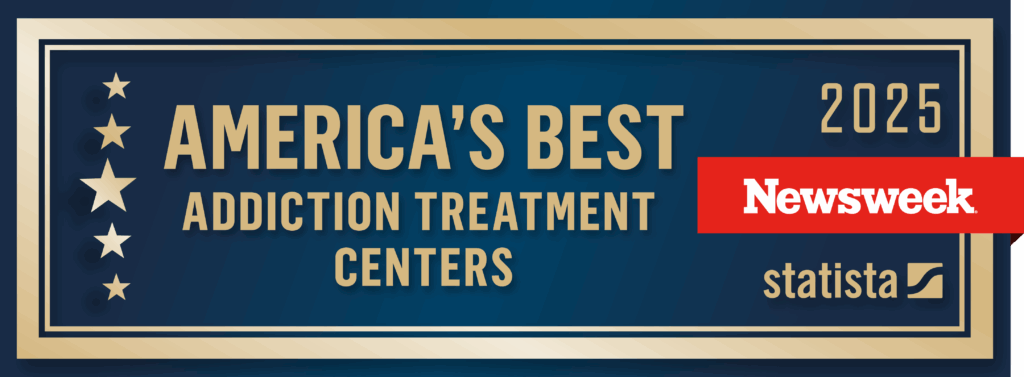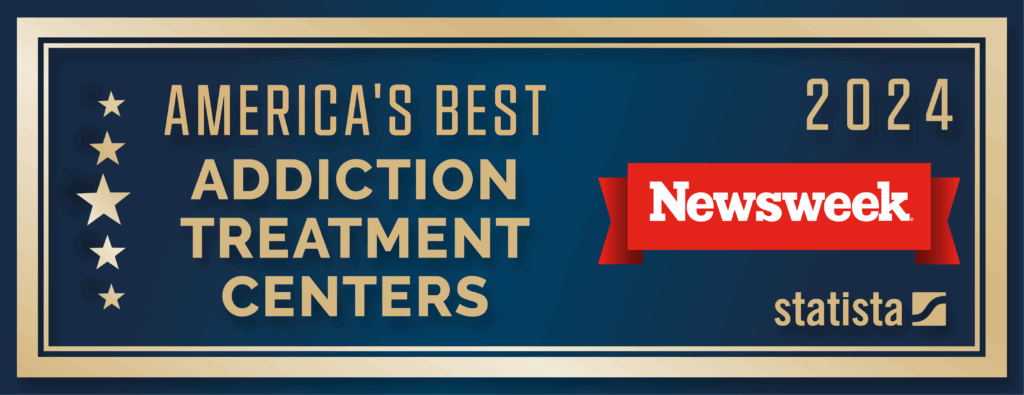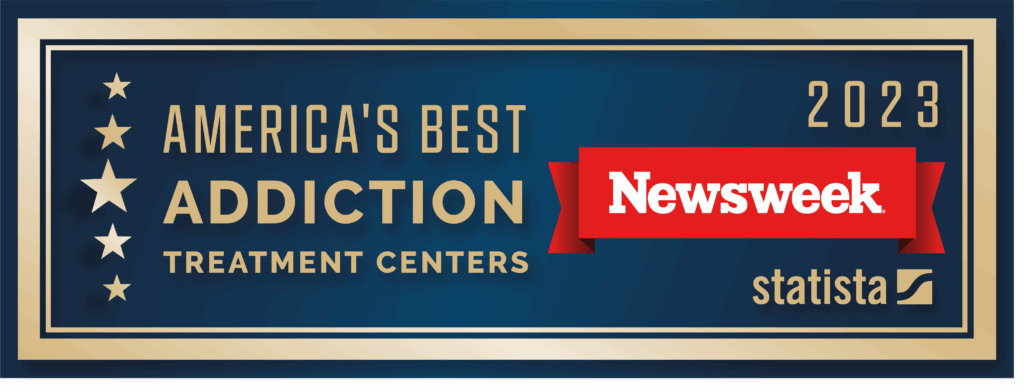We have treated almost 100,000 patients on our mission to save one million lives.
We have treated almost 100,000 patients on our mission to save one million lives.
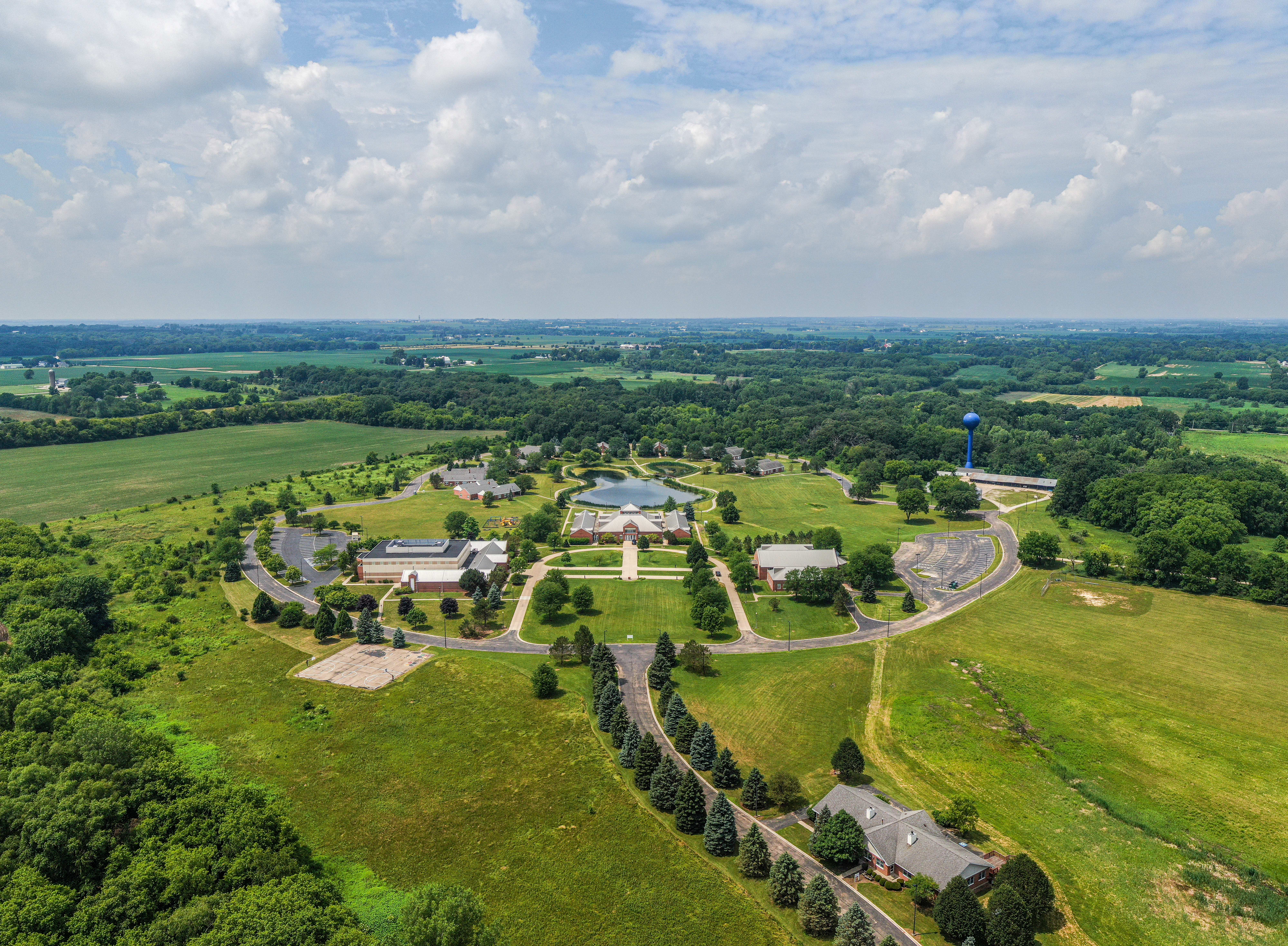
Explore treatment options, levels of care, and what to expect.
Those looking to address substance use disorders (often called addictions) in Illinois have many options at their disposal. Drug and alcohol rehabs in the Prairie State deliver science-backed therapies, personalized treatment plans, and robust recovery communities to help people move from active addiction to ongoing sober living.
This page outlines what to expect from drug and alcohol rehab in Illinois, whether you need residential rehab or outpatient treatment, and even if you have a severe addiction or a co-occurring mental health disorder. Read on to discover how you can connect with effective and compassionate treatment at an appropriate intensity for your needs and recovery goals.
Locations
Our Illinois Addiction Treatment Center Locations








St. Charles, IL
41W400 Silver Glen Rd,
St. Charles, IL 60175
Treatment Offerings
- Medically-Monitored Detoxification
- Residential Inpatient Treatment
Programs
- WorkFlex: Maintain work/school obligations
- Sober Living

St. Charles, IL,
300 Cardinal Dr Suite 280,
St. Charles, IL 60175
Treatment Offerings
- Outpatient Treatment
Programs
- Partial Hospitalization Program (PHP)
- Intensive Outpatient Services (IOP)
- General Outpatient Services (GOP)





Rolling Meadows, IL
1855 Rohlwing Road, Suite A,
Rolling Meadows, IL 60008
Treatment Offerings
- Outpatient Treatment
Programs
- Partial Hospitalization Program (PHP)
- Intensive Outpatient Services (IOP)
- General Outpatient Services (GOP)
Illinois
Residential Inpatient Treatment
Inpatient treatment, also known as residential rehab, is the most intensive level of addiction treatment [1]. This approach delivers immersive and structured 24/7 care in a safe and monitored setting. This form of care is beneficial for those with severe addictions, dual diagnosis – addictions with mental health conditions – or people who need supervised medical detox to kickstart their recovery.
Core Components of Residential Rehab
Residential drug and alcohol rehab in Illinois generally unfolds as follows:
Supervised medical detox

Comprehensive evaluation

Evidence-based therapies

Medication for Addiction Treatment

Holistic interventions

Family education and coaching

Inpatient treatment in Illinois offers a protective environment without access to addictive substances or exposure to triggers. The immersive nature of inpatient treatment creates a therapeutic community where people can learn coping techniques, address the issues driving substance abuse, and set a firm foundation for sustained recovery.
Illinois
Outpatient Treatment Programs
Outpatient drug and alcohol rehab in Illinois offers a flexible and affordable pathway to recovery from addiction. Outpatient programs enable individuals to fulfill their everyday obligations while pursuing personalized, evidence-based therapies.
Those looking to kickstart their recovery in Illinois can access outpatient programs at various levels of care, including:

PHP (partial hospitalization program)
PHP bridges the gap between inpatient and outpatient care and usually involves:
- 5 days of weekly therapy.
- 4 to 6 hours of treatment sessions per day.
- Comprehensive emotional and clinical support without the need for an overnight stay.
- Access to similar therapies found in inpatient rehab.

IOP (intensive outpatient program)
IOP can be a standalone option or a step-down from residential rehab or PHP in Illinois. Intensive outpatient programs involve:
- 3 to 5 days of weekly programming.
- 3 to 4 hours of treatments per day.
- Individual counseling and group therapy.
- Coping techniques and relapse prevention strategies.

Outpatient programs
Traditional outpatient programs offer a basic level of support that includes:
- 1 to 3 weekly sessions.
- Sessions last 1 to 2 hours.
- Group counseling or Individual therapy.
- Ongoing monitoring to encourage abstinence from drugs and alcohol.

Virtual treatment services
Telehealth has gained significant traction in Illinois since 2020. Virtual treatment might include:
- Remote access to support and therapy.
- Schedules to fit your existing commitments.
- Improved access for anyone with transportation issues.
- Similar outcomes to face-to-face treatment for many people.


Is a Full Continuum of Care Necessary?
Studies show that the longer someone engages with treatment for drug or alcohol addiction, the better the outcome [3]. The complete continuum of care progresses from more intensive levels of care to less intensive treatment, providing solid support throughout a person’s recovery journey.
Benefits of the entire continuum of care include:
- Gradual transition: Moving stepwise through various levels of care enables people to practice their recovery skills with diminishing levels of support, helping them build self-efficacy and become more confident as they progress.
- Extended duration of support: Ongoing treatment ensures that people can receive professional oversight and accountability during the challenging early stages of recovery.
- Individualized care: The intensity of treatment can be tweaked according to personal circumstances and recovery goals. Support can be increased as needed.
- Thorough skills development: Every level of care builds upon skills acquired in earlier treatment settings, streamlining the mastery of tools and techniques for sober living.
Although the complete continuum of care might not be necessary for everyone, most people find that a graduated treatment approach delivers the right level of support throughout the recovery process. The most appropriate treatment pathway is determined after a thorough assessment.
Community Support and Local Resources
Long-term addiction recovery continues long after rehab ends. Illinois is home to many community-based services that build upon formal interventions and provide ongoing connections to resources for those transitioning to everyday living.
Local Support Groups
Recovery Community Organizations
Illinois is home to recovery community centers offering:
- Peer coaching.
- Sober recreational and social activities.
- Advocacy opportunities.
- Employment, education, and housing resources.
Professional Recovery Support Services
There are other support services available in Illinois, such as:
- Sober living communities.
- Coaching programs.
- Legal aid.
- Vocational rehab.
- Healthcare assistance.
Substance Abuse Statistics in Illinois
+80,000
people
18-25
average age
+0.5%
national average
2x
as likely to overdose
Addiction to alcohol, drugs, and prescription medications remains a pressing public health issue in Illinois, just like in every U.S. state. The latest data from SAMHSA shows that rates of substance use disorder have doubled in the United States from 2019 [4] to 2021 [5]. Over 12% of Illinois residents used an addictive substance in the previous month in 2021.
Unfortunately, only 10 million of the 49 million U.S. adults with substance use disorders engaged with any kind of treatment. This is where we can help at Recovery Centers of America.
Substance Abuse: Illinois Statistics
people
average age
national average
as likely to overdose
Substance Abuse: Illinois Statistics
Addiction to alcohol, drugs, and prescription medications remains a pressing public health issue in Illinois, just like in every U.S. state. The latest data from SAMHSA shows that rates of substance use disorder have doubled in the United States from 2019 [4] to 2021 [5]. Over 12% of Illinois residents used an addictive substance in the previous month in 2021.
Unfortunately, only 10 million of the 49 million U.S. adults with substance use disorders engaged with any kind of treatment. This is where we can help at Recovery Centers of America.
Why choose RCA
If you’re considering kickstarting your recovery in Illinois but are unsure where to start, there are many reasons to choose Recovery Centers of America.
Our Approach
RCA utilizes an evidence-based treatment philosophy that addresses all aspects of addiction through personalized care and science-backed therapies blended with holistic interventions.
Specialized Recovery Pathways
At RCA, there are three treatment pathways intended to meet people where they are on their recovery journey.
01
Foundations of Recovery
02
Fresh Start
03
Balance
01 Foundations of Recovery
02 Fresh Start
03 Balance

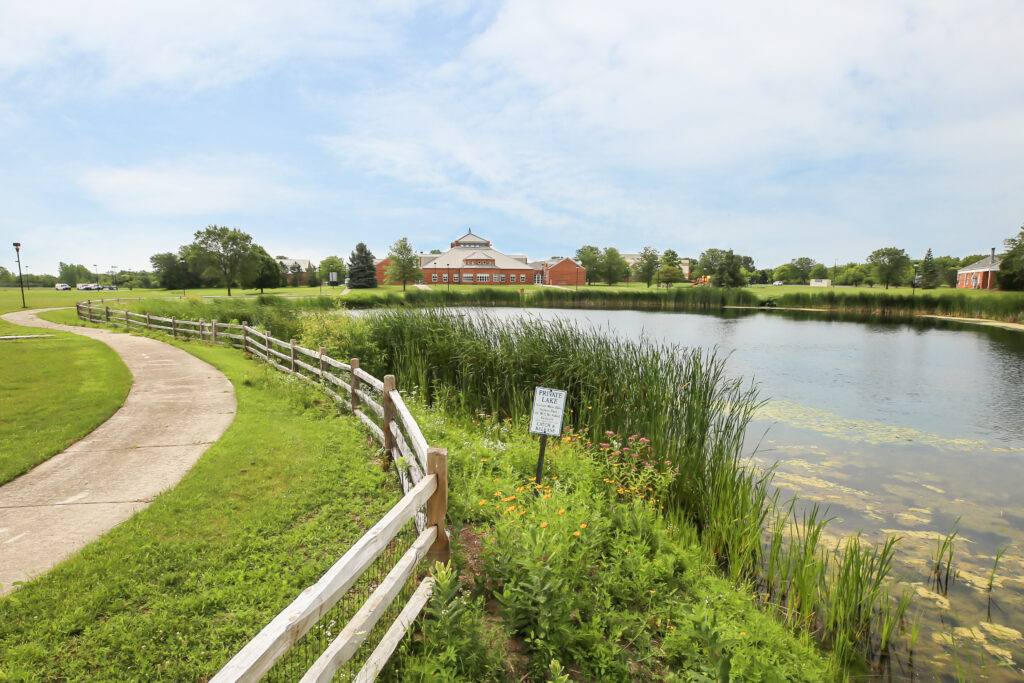
Trauma-Informed Treatment
Many substance use disorders are rooted in trauma and demand specialized interventions. These might include:
- Assessments: Screening and evaluation protocols that are sensitive to trauma.
- Environmental factors: Treatment in a safe setting.
- Integration: Addressing substance use and trauma concurrently rather than in isolation.

Evidence-Based Therapies
RCA used a range of evidence-based treatments combined with holistic wellness interventions.
01 CBT
Cognitive behavioral therapy is a first-line treatment for addiction that focuses on isolating and altering negative patterns of thinking and behaving.
- Core aspects: Examining behavioral activation and automatic thoughts and developing coping skills.
- Effectiveness: Many studies show the effectiveness of CBT for addiction treatment [6].
- Application: CBT can be delivered in one-to-one or group settings, with protocols developed for different addictive substances.
- Benefits: Developing practical skills supportive of long-term recovery.
02 DBT
DBT blends change-oriented techniques with acceptance-based strategies.
- Core aspects: Distress tolerance, mindfulness, interpersonal effectiveness, and emotion regulation.
- Effectiveness: Beneficial for those with trauma histories or emotional dysregulation.
- Application: Structured skills-development groups combined with one-to-one therapy.
- Benefits: Helps with emotional management and reduces impulsive behaviors.
03 Motivational Interviewing
Motivational Interviewing helps people resolve any ambivalence they have about behavioral changes as follows:
- Core aspects: Rolling with resistance, developing discrepancy, empathy, and building self-efficacy.
- Clinical application: Time-limited interventions or application alongside other therapies.
- Effectiveness: Highly beneficial for anyone in early recovery, typically improving treatment retention and engagement.
- Process: Collaborative exploration instead of more confrontational approaches.
04 Family Support
The integration of family members into the treatment process through education and coaching leads to significant improvements in recovery success through the following mechanisms:
- Education: Providing families with comprehensive education about addiction’s neurobiological basis helps shift understanding from moral judgment to a medical perspective.
- Communication skills: Facilitating structured communication exercises allows families to develop new interaction patterns that replace triggering exchanges with supportive conversations.
- Boundary setting: Working with families to create and maintain healthy boundaries helps establish relationship frameworks that support recovery and protect family well-being.
- Healing processes: Guiding families through specific healing protocols addresses longstanding patterns and wounds that contributed to and resulted from substance use challenges.
When families engage in these therapeutic processes alongside their loved ones, they become powerful allies in the recovery journey rather than unintentional obstacles to progress.


Medication-Assisted Treatment (MAT) in Illinois


Buprenorphine
- Partial opioid agonist that reduces withdrawal symptoms and cravings.
- Can be prescribed in office-based settings for greater accessibility.
- Lower overdose risk than full agonists.
- Available as daily films, tablets, or weekly and monthly injectable formulations.
Naltrexone (Vivitrol)
- Opioid antagonist that blocks the euphoric effects of opioids.
- Non-addictive medication with no potential for misuse.
- Monthly injectable format (Vivitrol) enhances treatment adherence.
- Requires complete detoxification before starting.
- Well-suited for highly motivated individuals.
Buprenorphine
- Partial opioid agonist that reduces withdrawal symptoms and cravings
- Can be prescribed in office-based settings for greater accessibility.
- Lower overdose risk than full agonists.
- Available as daily films, tablets, or weekly and monthly injectable formulations.
Naltrexone (Vivitrol):
- Opioid antagonist that blocks the euphoric effects of opioids.
- Non-addictive medication with no potential for misuse.
- Monthly injectable format (Vivitrol) enhances treatment adherence.
- Requires complete detoxification before starting.
- Well-suited for highly motivated individuals.


Acamprosate:
- Reduces post-acute withdrawal symptoms and drinking urges.
- Helps stabilize brain chemistry disrupted by chronic alcohol use.
- Generally well-tolerated with minimal side effects.
- Most effective when initiated after achieving abstinence.
- Requires a consistent three-times-daily dosing schedule.
- Safest option for those with significant liver disease.
Naltrexone:
- Reduces alcohol cravings and diminishes the pleasurable effects of alcohol.
- Available as a daily oral tablet or a monthly injection.
- Does not require abstinence before beginning treatment.
- Compatible with harm reduction and moderation approaches.
- Works well alongside behavioral therapies.
- Preferred treatment option for those with concurrent alcohol and opioid use disorders.
Disulfiram
- Creates an unpleasant physical reaction when combined with alcohol.
- Acts as a deterrent to drinking behavior.
- Requires high motivation and medication adherence.
- Best suited for specific patient populations.
- Most effective with supervised administration.
Acamprosate:
- Reduces post-acute withdrawal symptoms and drinking urges.
- Helps stabilize brain chemistry disrupted by chronic alcohol use.
- Generally well-tolerated with minimal side effects.
- Most effective when initiated after achieving abstinence.
- Requires a consistent three-times-daily dosing schedule.
- Safest option for those with significant liver disease.
Naltrexone:
- Reduces alcohol cravings and diminishes the pleasurable effects of alcohol.
- Available as a daily oral tablet or a monthly injection.
- Does not require abstinence before beginning treatment.
- Compatible with harm reduction and moderation approaches.
- Works well alongside behavioral therapies.
- Preferred treatment option for those with concurrent alcohol and opioid use disorders.
Disulfiram
- Creates an unpleasant physical reaction when combined with alcohol.
- Acts as a deterrent to drinking behavior.
- Requires high motivation and medication adherence.
- Best suited for specific patient populations.
- Most effective with supervised administration.
Integrated Psychosocial Approach
Illinois clinicians understand that medication alone isn’t sufficient for recovery. Their holistic methodology combines:
- Thorough evaluation process:
Identifying suitable medication candidates through a comprehensive assessment. - Consistent oversight:
Evaluating efficacy and adverse reactions through regular check-ins. - Therapeutic coordination:
Pairing pharmacological interventions with behavioral therapies that address underlying psychological factors. - Community connection:
Facilitating access to recovery networks that embrace medication-assisted approaches. - Knowledge-building:
Providing clear explanations about how medications function within the broader recovery framework.

Experienced Staff
- Medical specialists: Addiction Medicine-certified physicians and specialized nursing personnel who oversee detoxification protocols and medication management.
- Therapeutic professionals: Advanced-degree counselors specializing in substance use disorders and co-existing mental health conditions who facilitate individual and group sessions.
- Lived experience advocates: Team members who combine personal recovery journeys with professional qualifications, offering an authentic perspective and genuine empathy.
- Continuity coordinators: Dedicated staff facilitating transition planning, community resource linkage, and practical support for sustained recovery.
- Complementary practitioners: Experts in integrative approaches, including nutrition, physical wellness, mindfulness practices, and expressive therapies.
Our dedication to excellence ensures that individuals receive care from professionals who thoroughly understand the biological, psychological, and social dimensions of addiction.

State of the Art Facilities
Dignified living spaces
- Meticulously maintained residential areas prioritizing comfort and respect.
- Cottages with comfortable semi-private rooms with full-size beds, individual bathrooms, and flat-screen TVs
- State-of-the-art exercise equipment in our modern gym and wellness center
- Nutritious homemade meals made from fresh foods
Custom-designed areas for one-on-one therapy, group work, and educational programming.
Dedicated facilities for physical activity, meditation practice, and recreational engagement.
Clinical capabilities
Comprehensive on-site medical resources ensuring safe detoxification and continuous health monitoring.
Advanced systems
Contemporary technology supporting treatment coordination, communication, and educational access.
Dignified living spaces:
- Meticulously maintained residential areas prioritizing comfort and respect.
- Cottages with comfortable semi-private rooms with full-size beds, individual bathrooms and flat-screen TVs
- State-of-the-art exercise equipment in our modern gym and wellness center
- Nutritious homemade meals made from fresh foods
Custom-designed areas for one-on-one therapy, group work, and educational programming.
Holistic wellness spaces:
Dedicated facilities for physical activity, meditation practice, and recreational engagement.
Clinical capabilities:
Comprehensive on-site medical resources ensuring safe detoxification and continuous health monitoring.
Advanced systems:
Contemporary technology supporting treatment coordination, communication, and educational access.
Success Stories & Testimonials
We recognize that recovery looks different for everyone and provide individualized, evidence-based treatment tailored to each person’s unique circumstances.
Click here to explore numerous inspiring recovery narratives from our alums. These personal accounts represent just a fraction of the 77,000+ individuals we’ve supported in their recovery journeys as we work toward helping one million people achieve lasting wellness.
RCA in the Media
Our organization has received significant acknowledgment for treatment innovation and outcomes:
Frequently Asked Questions
What Can I Take With Me to Treatment?
If you are engaging in inpatient rehab at Recovery Centers of America, here’s a suggested packing list:
- Clothing: Bring enough comfortable clothing for up to 10 days, including suitable sleepwear and exercise attire. RCA has laundry facilities.
- Personal care items: Toiletries with no alcohol content, in their original, unopened packaging. Electric razors are allowed, but straight razors are prohibited.
- Medications: Any prescription medications in pharmacy containers should be accurately labeled. Medical staff will evaluate these at admission.
- ID and insurance: Insurance cards, photo ID, and necessary healthcare documentation.
- Contact information: Addresses and phone numbers of important contacts.
- Miscellaneous: Personal books, electronic devices that do not have wifi capabilities, etc.
Do not bring the following items to RCA:
- Mouthwash or perfume containing alcohol.
- Unapproved narcotic medications.
- Weapons.
- Large amounts of cash or expensive jewelry.
- Internet-enabled devices or cameras.
You will receive a complete list for packing purposes during the admissions process.
How Long Does Treatment Last?
The duration of treatment at RCA depends on individual needs, treatment goals, and clinical recommendations. Typical timelines include:
- Detox: Between 5 and 10 days, based on the substance and the severity of withdrawal.
- Residential rehab: From 7 to 25 days, although longer treatment durations are possible, depending on insurance approval and clinical necessity.
- PHP: Between 2 and 4 weeks, with 5 to 7 days of therapy each week.
- IOP: Usually 6 or 8 weeks, with up to 5 sessions of therapy each week.
- Outpatient treatment: May last several months, with sessions decreasing in frequency.
At RCA, you will work closely with medical professionals and addiction specialists to establish the best treatment length for your needs and recovery goals. Plans may be adjusted as required throughout the process.
What Is Inpatient Drug Rehab?
Inpatient rehab is an immersive residential treatment program for substance use disorders (addictions). This form of treatment includes:
- Structured care.
- Comprehensive initial evaluation.
- Medical guidance and 24/7 supervision.
- Science-backed and holistic therapies.
- An environment free of distractions and triggers.
- Supportive community of peers.
Residential rehab is the most intensive care level on the continuum of addiction treatment, delivering a highly focused environment where people can engage in recovery without access to substances or external distractions.
Is Illinois a Good State for Treatment?
Illinois rehabs provide many advantages for those seeking addiction treatment, such as.
- Diverse treatment modalities.
- Supportive healthcare policies.
- Many research institutions.
- Established recovery community.
- Top-tier addiction specialists.
These elements make Illinois an excellent location for those seeking comprehensive treatment for addiction to drugs, alcohol, or prescription medications.
Where to Go for Addiction Treatment
If you need help addressing any type of addiction, consider the following:
- Primary healthcare provider: Your physician may offer screenings, referrals, or initiate medication for addiction treatment.
- ER departments: Hospital emergency rooms can tackle acute medical needs, connecting people with appropriate treatment resources.
- Illinois substance use helpline: This state helpline (1-833-234-6343) provides referrals to treatment providers and offers confidential information to those battling addictions.
- Insurance carriers: Your health insurance provider can guide you toward in-network treatment providers.
- Direct admissions: Many rehab centers, including RCA, offer around-the-clock admissions. Reputable rehabs will provide comprehensive assessments to establish the optimum level of care.
- Community organizations: Peer support groups may help individuals find appropriate treatment options.
There is no universal pathway to addiction treatment. The optimal level of care hinges on personal circumstances, the severity of the addiction, the intensity of withdrawal symptoms, co-occurring disorders, and insurance coverage.
Does Insurance Cover the Costs of Treatment in Illinois?
Illinois has robust insurance parity laws requiring coverage for substance use disorder treatment. Most private insurance plans cover addiction treatment at levels comparable to those for physical health conditions, although specific coverage details vary by plan. Illinois Medicaid provides coverage for substance use disorder treatment across the continuum of care for eligible individuals. Medicare covers inpatient and outpatient addiction treatment with applicable co-payments and deductibles. Insurance obtained through the Illinois Health Insurance Marketplace must include substance use disorder treatment as an essential health benefit. Recovery Centers of America works with most major health insurance providers and offers insurance verification services to help people understand their coverage before admission. Financial counselors can explain payment options, potential out-of-pocket costs, and available assistance programs for Illinois residents seeking treatment.
Taking the First Step Toward Recovery
If you need immediate help accessing evidence-based addiction treatment in Illinois,contact RCA today.
